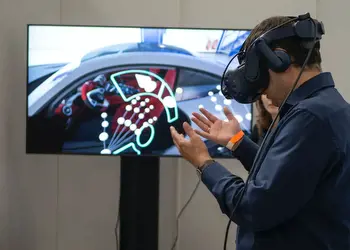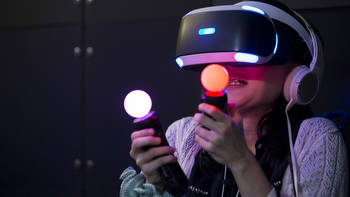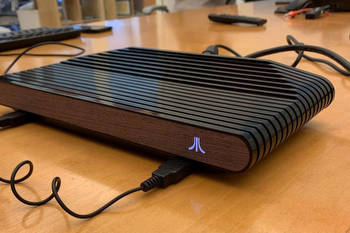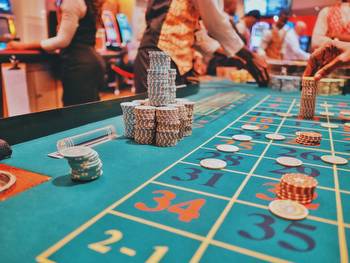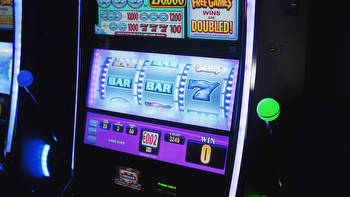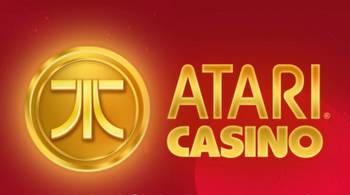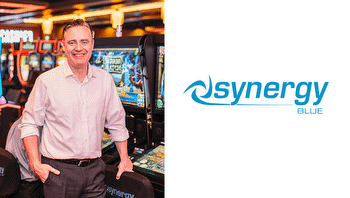Skill gaming revives, tapping both casino and arcade influences

In response to a 30% decline in casino winnings, some hope familiarity of the arcade-style gaming presentation will drive business and usher in a new generation of gaming machines.
Developments in the casino gaming sector are influencing consideration across the larger out-of-home entertainment landscape, driving some emerging technologies. Change is happening on many fronts.
Skill gaming, which offers the tantalizing promise of the marriage of gaming to actual arcade-style video game concepts, has seen the promotion of leading names in the sector, such as Gamblit Gaming, GameCo, Synergy Blue and Next Gaming, along with several other hopeful start-ups and established names.
Skill gaming has, in recent months, seen major restructuring across the board. Synergy Blue, owned by the Augustine Band, announced the appointment of a new CEO to lead the direction of an operation with a tag line "fun you can bet on." This was followed by the launch of an arcade-style gaming platform called Area50Fun, a platform inspired by video arcade and casino gaming.
Gaming seeks its audience
The fundamental drive in establishing a new form of gaming environment is to address the crippling drop off in time spent on the gaming floor by Millennial visitors, against Boomer and Gen X age groups marked by a 30% decline in casino winnings. There is hope that the familiarity of the arcade-style gaming presentation, with gaming components, would drive business and usher in a new generation of gaming machines.
Companies that wrapped themselves heavily in video game IP include the Konami Gaming Frogger and Scientific Games Space Invader and Pac-Man platforms. The question within the gaming industry is if the promise of skill gaming is matched by the competence of the developers who chased after the goal. And many of the hopeful skill gaming startups seem to be hurriedly pivoting towards supporting e-sports elements.
The casino sector is under incredible pressure and, while some invested in sports betting, skill gaming or even e-sports, the traditional casino sector still seemed wedded towards migrating to full online gaming. Bally's Corp. signed an agreement to combine with global online gaming operator Gamesys. described by Bally's chairman as "marking the transformational step in our journey to become a leading integrated, omni-channel gaming company. And capitalize on the significant growth opportunities in the U.S. sports betting and online markets."
Crowd Out Capital, meanwhile, placed a bid of some $32 million to acquire Punch Bow Social, another example of the changing atmosphere towards facility and out-of-home social entertainment. PBS operates bowling, putting greens, table tennis, karaoke and amusement — including shuffleboard, pinball and video amusement.
The creditors and investors feel that the Crowd Out Capital offered the most expeditious route to reopening the business and generating revenue again from the returning audience.
Technology on the move
On the technology front, augmented reality appears to be looking to find its feet coming out of lockdown following the resurgence of interest of virtual reality.
AR's promise of being able to superimpose digital information and imagery on a real-world view has once again been promoted as an accessible goal. This time the technology is being married to the deployment of 5G networking, offering a more powerful connectivity for the hardware.
Niantic revealed its Pokemon AR project, codenamed "Urban Legend." Described as a 5G AR demo, a video has circulated of a much more sophisticated multi-player smartphone and headset Pokemon battling game, interacting within the real world.
Leaks have even surfaced that Niantic is planning to release the game on its own AR headwear, as teased by the CEO in a tweet.
The migration from standard AR (information overlayed on top of real-world imagery), mostly personified as "smart-glass" and mixed reality (visuals incorporated and interacting with real-world imagery) is one of the subtle enhancements of the dream of augmented reality deployment.
For the location-based entertainment scene, numerous attempts to deploy AR and MR into the space have been gaining ground.
The use of AR headsets at Universal Studios Japan's Super Nintendo World, $500 million attraction Mario Kart: Koopa's Challenge could be the herald of greater adoption in this space.
Sony's 2020 Ghostbusters Rookie Training project, a temporary attraction installed at Ginza Sony Park, offered players a chance to become Ghostbusters, wearing prototype Sony R&D Center developed AR glasses. This attraction used more as a test-of-concept than as a serious entertainment attraction.
Another aspect of the resurgence in interest in AR and MR was the news from CES 2020 that along with Sony, Facebook and Apple were working on production release headset designs to compete in the 2022 marketplace. Recently, Apple's chief executive went as far as to state that AR is "critically important" to the future of the corporation.
While most of the MR investment has been focused on enterprise, such as with HoloLens2 Lenovo XR, and Lynx-R1, new investment is attempting to try and roll out an AR platform that will be attractive to the consumer audience. The use of MR allows the best of both worlds, able to be a VR headset and, using pass-through, also be an AR system, and this is seen as a winning combination, all furled by the adoption of 5G network connectivity.
Blockchain and cryptocurrency also continue to expand in gaming.
It was recently confirmed that Atari will split into two divisions, one focusing on the free-to-play gaming and game IP, and a new division to wholly focus on blockchain payment and betting infrastructure, Atari Blockchain.
This blockchain infrastructure includes the launch of an in-game currency called Atari Token. It remains to be seen how these operations will interact with the new facility entertainment business in development, Atari Hotel. Sources have suggested that the first venue will include a casino style environment and that this will be one of the first to support blockchain currency for payment.
(Editor's note: Extracts from this blog are from recent coverage in The Stinger Report, published by KWP and its director, Kevin Williams, the leading interactive out-of-home entertainment news service covering the immersive frontier and beyond.)











